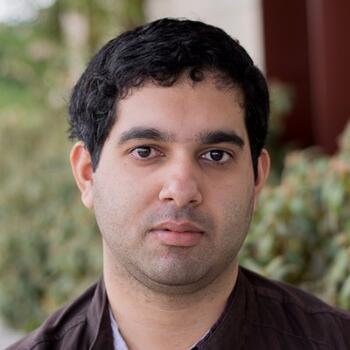Rahul Trivedi (Electrical Engineering) | Quantum Memory Nodes for Communication Applications (Max Planck Institute for Quantum Optics)
Rahul Trivedi (Electrical Engineering) | Max Planck Institute for Quantum Optics

The graduate research and internship program supported me while pursuing research at Max Planck Institute for Quantum Optics (MPQ). I worked with the theory group at MPQ led by Prof. Ignacio Cirac. Prof. Cirac is a pioneer in the field of quantum information, and his work has been incredibly impactful in multiple fields spanning quantum information theory, quantum computing and simulation, quantum communication. In addition to solving problems in quantum information theory, he leads a research group that works at a unique intersection of quantum information theory and many body physics. One major thrust in his group is to understand many body physics through the lens of quantum information theory. On the other hand, his group also studies the use of such physical many body systems to solve computational problems while exploiting the laws of quantum physics. Most of my interaction with Prof. Cirac’s group were through the two postdoctoral scholars in his group that I closely collaborated with – Dr. Daniel Malz and Dr. Nina Frohling.
As an electrical engineering PhD student who works at the intersection of engineering and physics, my research at Stanford fell within the area of quantum technologies. Much of my work here was related to developing models and simulation tools that can enable analysis and design of quantum hardware for application in quantum computing, communication or metrology. During the summer, I worked on applying some of these simulation tools to designing quantum memory nodes for communication applications. More specifically, I looked at non-Markovian open quantum systems that supported long lived states that could be accessed by exciting the open quantum systems with complex (entangled) sources. Since these states were long-lived, they could be used for storing quantum information as part of a more complicated quantum communication protocol. The first part of this problem involved figuring out a tractable mathematical description of this excitation process which could lend analytical and numerical insights into this system. Furthermore, we then studied the limits on how efficiently we could excite this system given freedom to design the excitation source. We also constructed concrete protocols on how to use these systems as memories in a practical experimental setting.
I also started working on problems in theory and application of quantum control techniques for quantum hardware design. The idea here was to attempt to solve quantum control problems for many body quantum systems by exploiting various methods of efficiently but approximately simulating them. One approach that we are investigating is to use tensor network algorithms for simulating such systems on classical computers. Another approach that we plan to study in future is the use of noisy quantum computers, which are close to experimental reality, to simulate and design controls for quantum systems. This work is still in its early stages, and I am continuing to work on these topics beyond my summer research.
My research experience in working with Prof. Igancio Cirac’s group was extremely rewarding. Due to the ongoing COVID-19 pandemic, I could not be in Germany in person and had to perform my summer research remotely. While this was not an ideal situation, Prof. Cirac and his group members were incredibly supportive of my remote research and were always accommodated any requests for meeting or discussions that I would have. Although were were in distinct time zones, we were always able to find a time to meet and discuss research, which would typically be mornings for me and evenings for my collaborators in Germany. Although I missed out on attending various academic meetings and seminars held at Max Planck Institute, which I would have had access to had I gone there in person, I still learnt a lot by talking and remotely collaborating with Prof. Cirac and his group. Furthermore, being at Stanford during summer while performing remote research at Max Planck Institute also enabled me to continue to work closely with my advisor’s (Prof. Jelena Vuckovic) group at Stanford. Prof. Vuckovic leads a primarily experimental group, and her input into my research was very valuable in addressing some of the more practical questions that could arise in actual implementation of our theoretical proposals.
Having the opportunity to work with Prof. Cirac’s group therefore exposed me to a number of related but distinct fields. I had been interested in continuing research in quantum information and quantum hardware beyond my PhD, but also change the precise topics that I was working on so as to increase the breadth of my academic experience. My summer research was instrumental in allowing me to concretely decide what topics I would like to pursue over the next few years as a postdoctoral scholar at MPQ. I would strongly recommend this scholarship to any student who is interested in broadening their social and academic horizon by working with the excellent academic and industrial groups in Germany.
